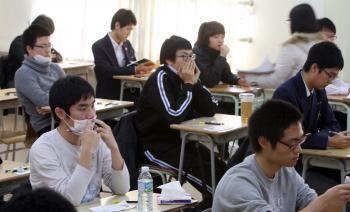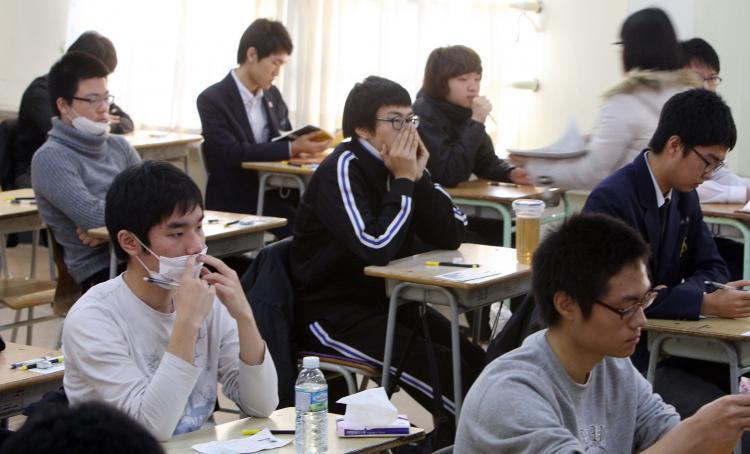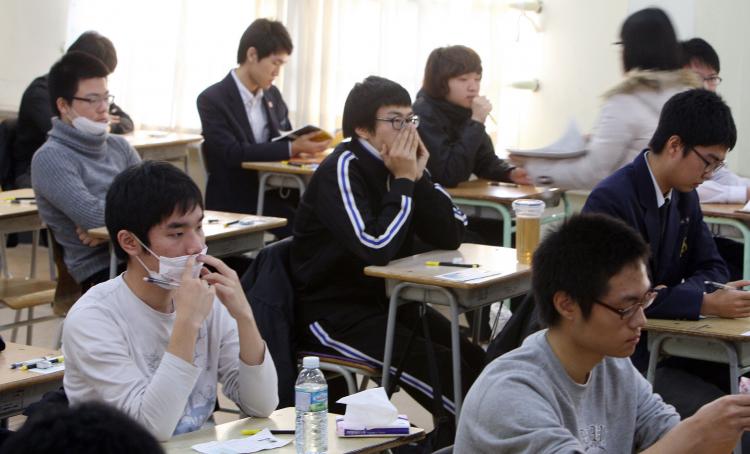Foreign Teachers in Korea Vilified by Anti-English Group
A group is defaming the reputations of Canadian and other foreign teachers of English in South Korea.

South Korean students prepare to take a standardised exam for college entrance at a high school in Seoul on Nov. 12, 2009. CHUN YOUNG-HAN/AFP/Getty Images

Joan Delaney
Senior Editor, Canadian Edition
|Updated:





